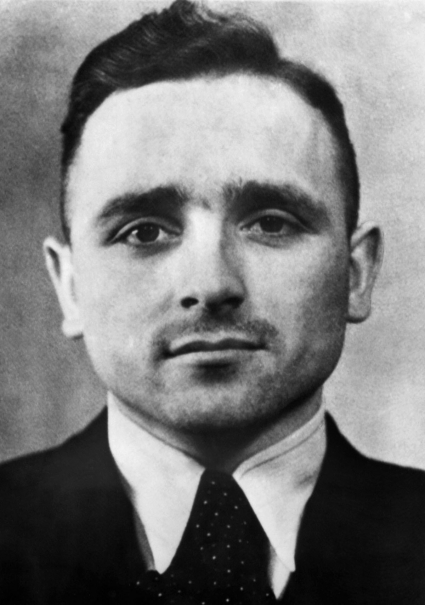“I admire you, but in the end everybody talks.”
To Lise Lesevre during interrogation, from the Saturday, March 23, 1987 issue of "The Philadelphia Inquirer"
Nikolaus Barbie was an SS and Gestapo functionary during the Nazi era. He was known as the "Butcher of Lyon" for having personally tortured prisoners of the Gestapo - primarily Jews and members of La Résistance - while stationed in Lyon under the collaborationist Vichy regime. After the war, United States intelligence services employed him for his anti-Marxist efforts and also aided his escape to Bolivia.The West German Intelligence Service later recruited him. Barbie is suspected of having had a hand in the Bolivian coup d'état orchestrated by Luis García Meza in 1980. After the fall of the dictatorship, Barbie no longer had the protection of the government in La Paz and in 1983 was extradited to France, where he was convicted of crimes against humanity. He died of cancer in prison on 25 September 1991. Wikipedia

“I admire you, but in the end everybody talks.”
To Lise Lesevre during interrogation, from the Saturday, March 23, 1987 issue of "The Philadelphia Inquirer"
“If there were mistakes, there were mistakes. But a man has to have a line of work, no?”
Quoted in "Whiteout: The CIA, Drugs, and the Press" - Page 184 - by Alexander Cockburn, Jeffrey St. Clair - Political Science - 1998
Quoted in "The Butcher of Lyon: The Story of Infamous Nazi Klaus Barbie" - Page 140 - by Brendan Murphy - History - 1983
“Don't worry. Your friends are dead and you are going to join them.”
To Blandon from "Klaus Barbie, the "Butcher of Lyons" - Page 63 - by Tom Bower - Biography & Autobiography - 1984
Quoted in "Klaus Barbie, the "Butcher of Lyons" - Page 23 - by Tom Bower - Biography & Autobiography - 1984